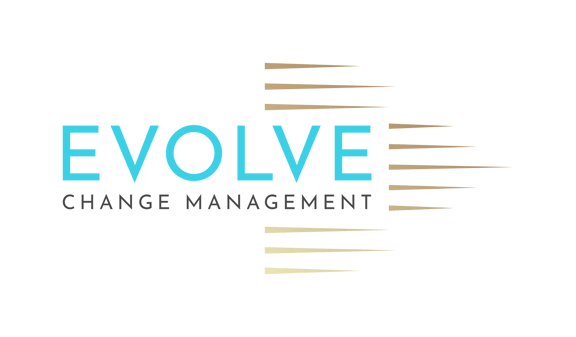

Most businesses don’t think they have an insular culture. After all, their people love working there. Leadership is confident in their way of doing things. Employees feel comfortable and secure.
Here’s the uncomfortable truth: when an organisation only listens to itself, it creates a false sense of success. This mistake keeps organisations trapped inside their own reality.
What feels like stability may actually be stagnation. What looks like loyalty might actually be a lack of exposure to anything better. What sounds like confidence could actually be a reinforced echo chamber.
When a workplace rejects outside influence, dismisses external standards, and resists uncomfortable progress, it doesn’t just risk falling behind, it actively erodes its own credibility, skills, and competitive edge. Even more insidious? This isn’t always business-wide. Some organisations prioritise customer-facing areas while allowing core enabling functions to lag behind.
How do you know if your organisation is stuck in its own echo chamber? Here are the key signs to watch.
The signs of an insular workplace
1. Internal opinions are treated as fact
Instead of looking at external trends, benchmarks, or best practices, an insular workplace assumes its own view is correct, without questioning whether it holds up in the real world.
If leaders and teams consistently rely on:
“We just know, we don't need to ask...”
“Why involve others? We understand our business better than anyone.”
“We’ve always done it this way.”
…it’s not confidence. It’s isolation disguised as certainty.
2. Challengers are pushed out, not promoted
In a workplace that only values internal, compliant voices, the biggest threat isn’t failure, it’s people who ask uncomfortable questions.
High performers who bring fresh ideas or question outdated methods often find themselves:
- Ignored, stonewalled or talked over
- Excluded from decision-making
- Subtly (or not so subtly) encouraged to leave or change tact
Instead of rewarding progress, these workplaces protect the status quo at all costs.
3. Success is measured internally, not against the real world
A business can look successful, until it steps outside its own walls. Processes run smoothly enough. Results meet existing expectations. Leaders are relatively confident. But if:
- Others around are evolving faster
- Customers or clients are shifting their expectations
- Key industry standards are rising while internal practices stay the same
…then the business isn’t truly successful, it’s slowly falling behind without realising it.
Losing touch: When an organisation, or its capabilities, become outdated
An insular culture doesn’t just make an organisation out of step with external expectations, it also erodes the relevance of its own skill sets over time.
1. The business as a whole loses relevance
Products, services, or ways of working no longer meet high standards.
Clients or partners move to competitors who are keeping pace with industry shifts.
Opportunities for growth are missed because the organisation is operating in isolation.
2. Business functions lose competitive edge
It’s not just whole organisations that can stagnate, functions within the business can fall behind too. This is especially common in enabling functions that don’t have direct customer impact but are essential to keeping the business strong.
For example:
- A communications team still relies on outdated engagement strategies, while the business expects more dynamic, multi-channel interaction that aligns with industry trends.
- HR continues traditional workforce planning and recruitment methods, while external talent markets have shifted towards skills-based hiring and agile workforce models.
- Strategy and transformation functions remain reactive, waiting for leadership direction, instead of actively shaping the business’s ability to evolve.
When internal capabilities stop evolving, the organisation isn’t just falling behind externally, it’s setting itself up for operational underperformance.
Breaking free from the workplace echo chamber
1. Look outside for benchmarks, not just inside
Compare capabilities, practices, and strategic direction against the best in your field, not just against past performance.
Stay curious about industry shifts rather than assuming they don’t apply.
2. Encourage fresh perspectives... and actually listen
Hire from outside industries or competitors to challenge internal assumptions.
Seek feedback from customers, clients, and industry peers on how expectations are shifting.
Treat innovation as an asset, not a disruption.
3. Promote adaptability over compliance
Reward employees who bring new ideas rather than those who only maintain existing standards.
Build a culture where learning and external engagement are part of the job.
4. Recognise that stability ≠ success
A workplace that never challenges itself isn’t stable, it’s stagnant.
Long-term success belongs to businesses that proactively evolve before they’re forced to.
Conclusion
If your organisation treats industry advancements, external expectations, and new ways of working as irrelevant, or worse, as 'threats', then it’s already falling behind. Similarly, if your business only updates its customer-facing practices while leaving core enabling functions neglected, it’s not evolving, it’s masking its internal weaknesses.
A business that only listens to itself doesn’t stay the same, it actively erodes its own credibility, market position, and internal expertise. The organisations that thrive aren’t the ones that cling to tradition. They’re the ones that adapt before they have no choice.
If your workplace rejects progress, punishes ambition, and dismisses external influence, it’s time for a culture check, because the longer an organisation isolates itself, the harder it becomes to recover.
